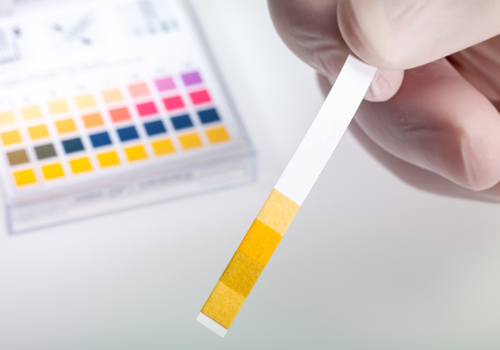

The most common problem occurs when the water source is alkaline, coming from chalk or limestone aquifers. If the pH is higher than optimum (more alkaline), then trace element deficiencies quickly appear. The bright yellow leaves on the growing tips that denote iron deficiency are usually the first to show.
In modern commercial horticulture the growers use electronic sensors in the irrigation water to measure the pH, and if the pH rises then pumps are triggered to add concentrated mineral acids into the water. In this way the pH of the water is always maintained at the optimum level. There is no risk to operators from the hazardous concentrated acids which are pumped without any human contact.
This excellent equipment is too expensive for small growers, who often struggle to control pH in their irrigation water. There are some things that can be done with minimal investment. If the water is not too alkaline, then Solufeed Vigil or Solufeed Fleury fertilizers will help. These fertilizers contain a dry acid which is activated in the irrigation water and brings the pH of the water down. The fertilizers themselves remain easy to use without any onerous handling restrictions. If the problems with alkaline water are severe, then another alternative is to use “AgroAcid” sold by Solufeed Ltd. This astonishing invention is a liquid product. A “synthetic acid” which acts like a powerful mineral acid to reduce irrigation water pH and yet requires minimal safety equipment to ensure safe handling and use. Whilst AgroAcid is more expensive than concentrated mineral acids there is no difficulty in buying, delivering and storing small amounts. This makes it ideal for the small grower.
